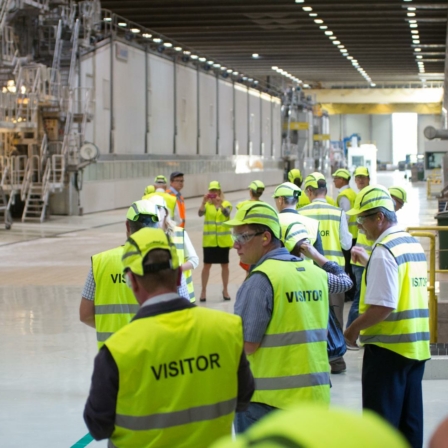Speaking at a seminar in Joensuu, Finland, the Chair of the UN’s Intergovernmental Panel on Climate Change has warned that climate change is inevitable unless all countries take further measures.
Rajendra K. Pachauri – one of the world’s leading climate change specialists – was addressing the Changing climate – is resource efficiency a way out of crisis? conference, which discussed topics such as the bioeconomy, climate change, resource efficiency and their associated crises.
The head of the Nobel Peace Prize-winning IPCC says he remains optimistic for the future because bioeconomy will open up new opportunities. But he warned that without renewable resources the current trends will not change: “This will increase the risk of various crises, and a struggle over increasingly scarce natural resources, such as clean water. Crises are scary, but they are also an opportunity.”
This September, Pachauri also addressed the Koli Forum, held in the Koli national park in eastern Finland, where he spoke in favour of a sustainable bioeconomy. In his opinion, Europe, with its advanced technology and high education, plays a key role in the development of new means and practices for increasingly efficient, sparing and innovative use of scarce natural resources for the benefit of the entire human race. Pachauri emphasised that this challenge is balanced with business opportunities.
“Resource efficiency is becoming a vital component of sustainable development and crisis management,” according to the Finnish Minister for International Development Heidi Hautala, who also addressed the Joensuu seminar. Sustainable development depends on an inclusive, green economy that creates jobs, on sustainable management of natural resources, and on environmental protection. And Hautala insists that this will promote development and prevent crises caused by the use of natural resources. Resource efficiency may also promote crisis recovery and reduce the likelihood of the conflict recurring.
Sitra has adopted the smart use of resources as one of its major focus areas and is supporting the efforts of the Koli Forum. The event, according to the forum’s secretary general, Adjunct Professor Liisa Tahvanainen, is designed to promote “resource efficiency as part of sustainable and cost-effective bioeconomy”.
Giving his backing to the event, Sitra director Jukka Noponen said: “Economical and more efficient use of natural resources is turning into a major challenge, but also an opportunity. Increased investment in innovations that will improve resource efficiency will create jobs, euros and international competitiveness.”
Meanwhile, the IPCC is publishing its tripartite Climate Change Assessment Report this autumn. The September 2013 publication’s first part, on climate change science, will be followed by the second and third parts, and a summary report, due in 2014. The previous Assessment Report appeared in 2007.
Further information is available in the Koli Forum press release.




Recommended